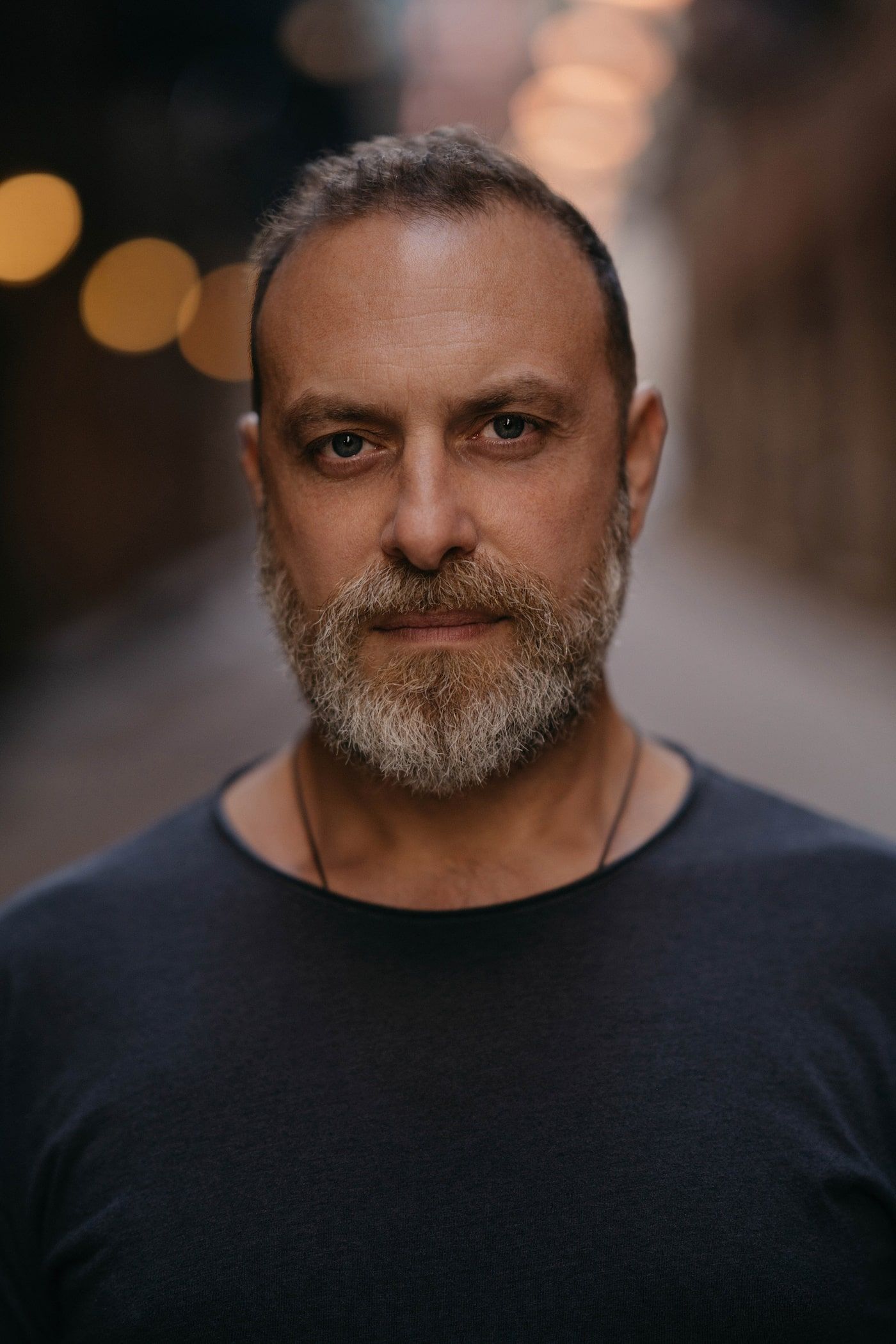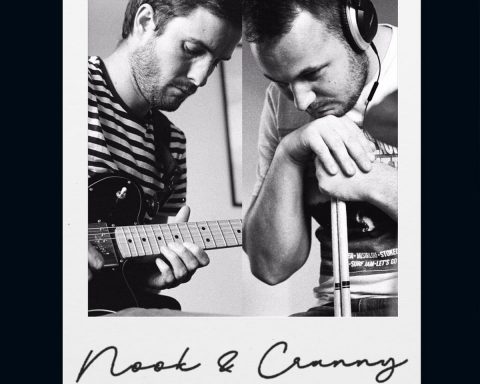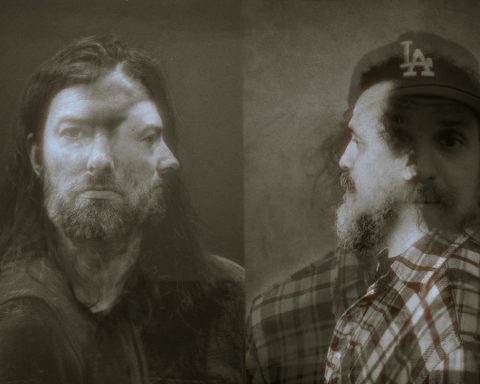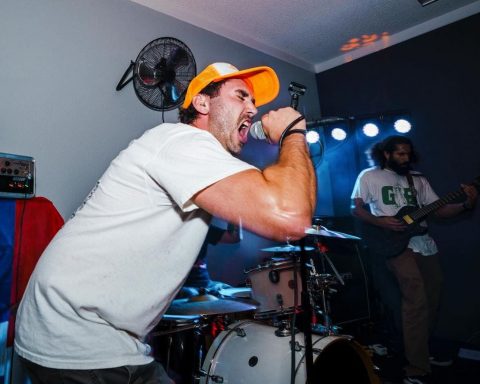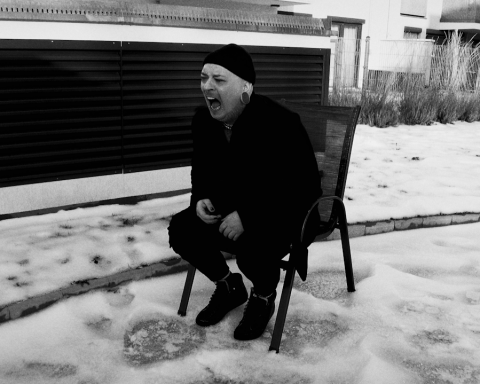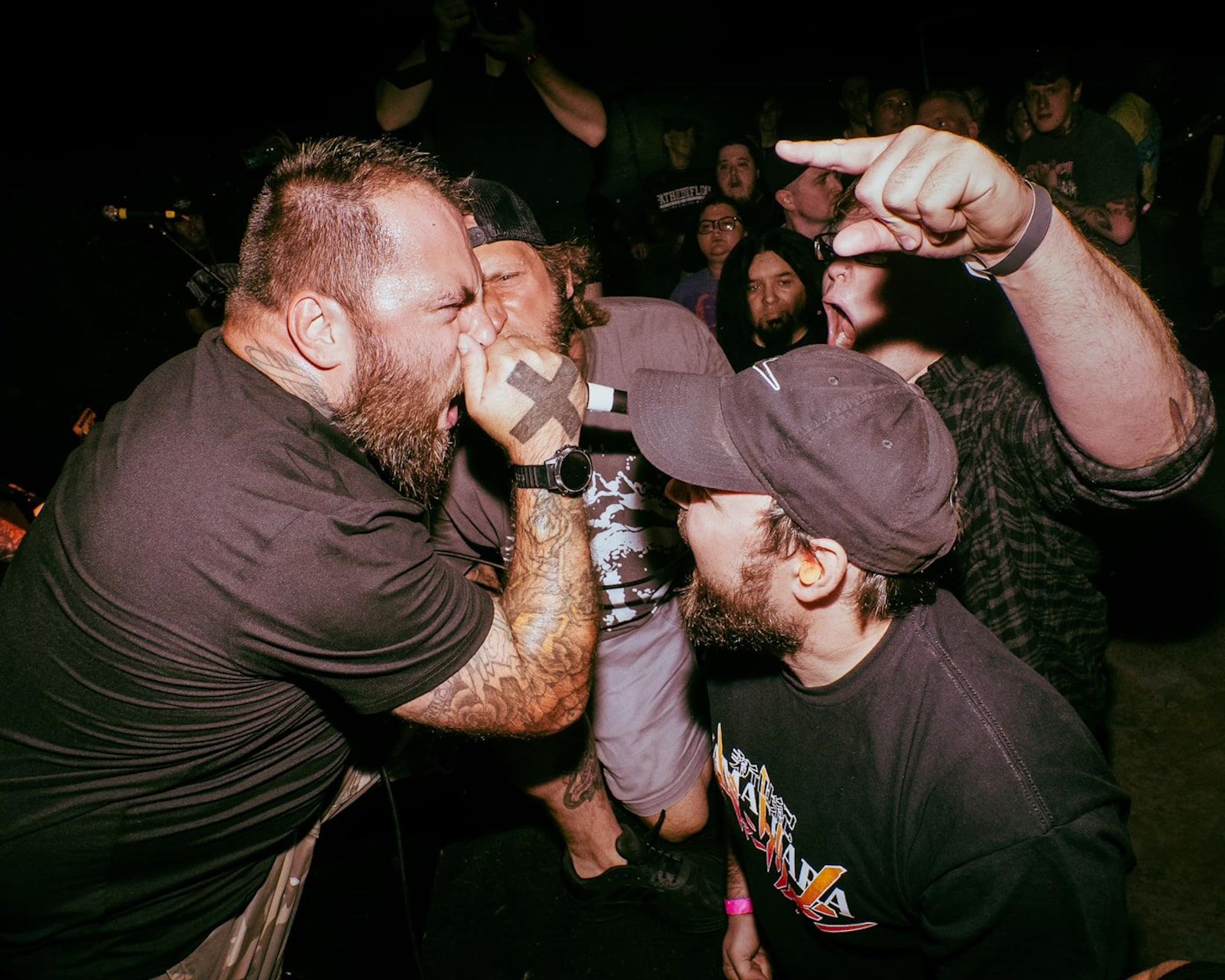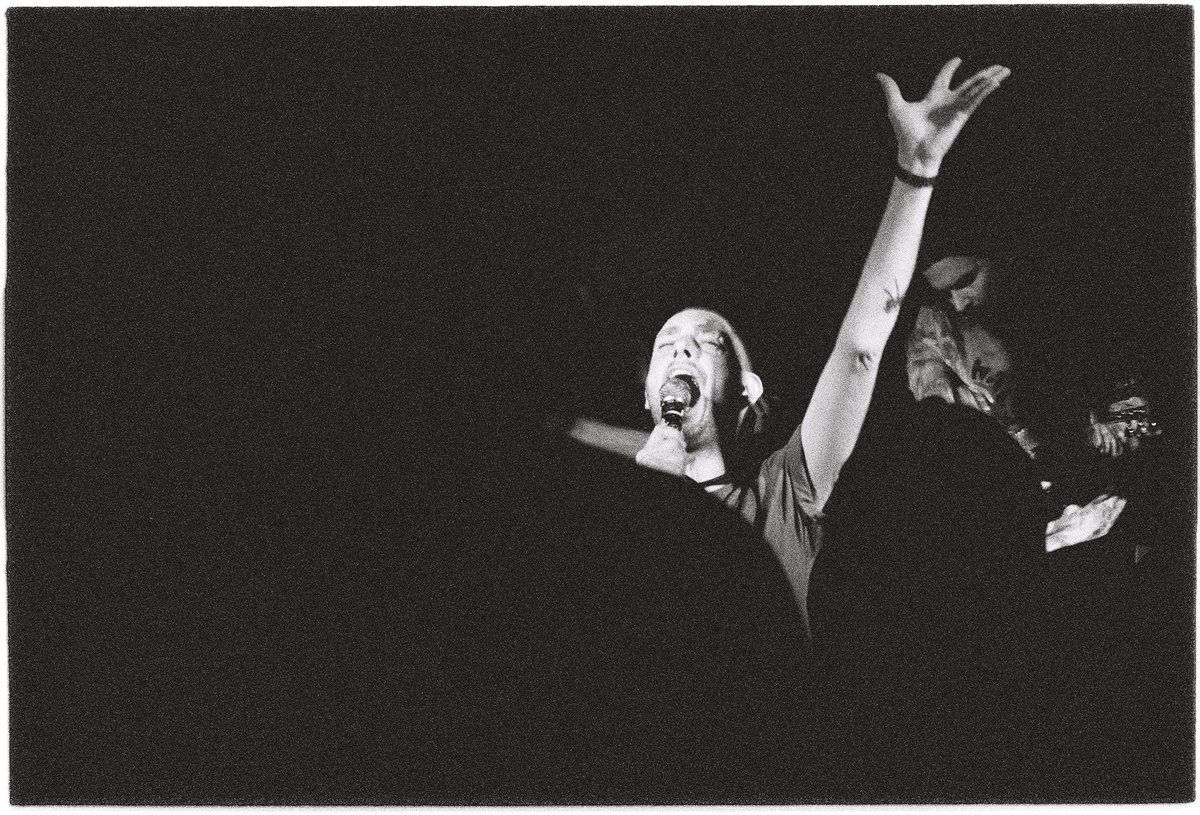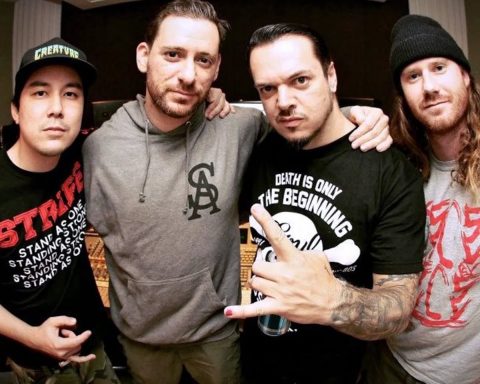In Chicago, Resilience Entertainment operates with a straightforward mission: bringing Ukrainian music to North America. Founded by Igor Golubchik, who moved from Odessa thirty years ago, the agency bridges cultures through concerts, featuring a mix of established and emerging Ukrainian artists.
Igor’s path into concert promotion started with a love for music born in the shadows of the USSR.
He recalls, “Watching American music videos in the 1980s blew my mind. I had no talent myself but was drawn to music.”
His journey began with DJ gigs in high school, then radio hosting in college, where he began promoting concerts. The early days were tough, full of mistakes and learning experiences, but they laid the foundation for his future endeavors.
In our interview below, Igor shares the gritty reality of his early career.
“The biggest challenge was being a naive kid in a rough show business world,” he admits. From mishaps with unreliable promoters to navigating the complexities of the industry, Igor’s stories reflect a journey marked by resilience and adaptation.
Resilience Entertainment is more than just an agency.
In 2022, the agency donated over $500,000 to Ukraine relief, followed by another $350,000 in 2023. These concerts have a tangible impact, supporting both the artists and their war-torn homeland. Igor recounts a poignant moment when a young veteran thanked an artist after a show, revealing that funds from their concerts had paid for his prosthetics.
The focus is clear: promoting Ukrainian talent in North America.
From big names like BOOMBOX and OKEAN ELZY to rising stars like SKOFKA and KOLA, Resilience Entertainment is dedicated to showcasing the depth and diversity of Ukrainian music. Igor speaks of the “Cultural Front,” a term that embodies their mission to raise spirits and awareness through music.
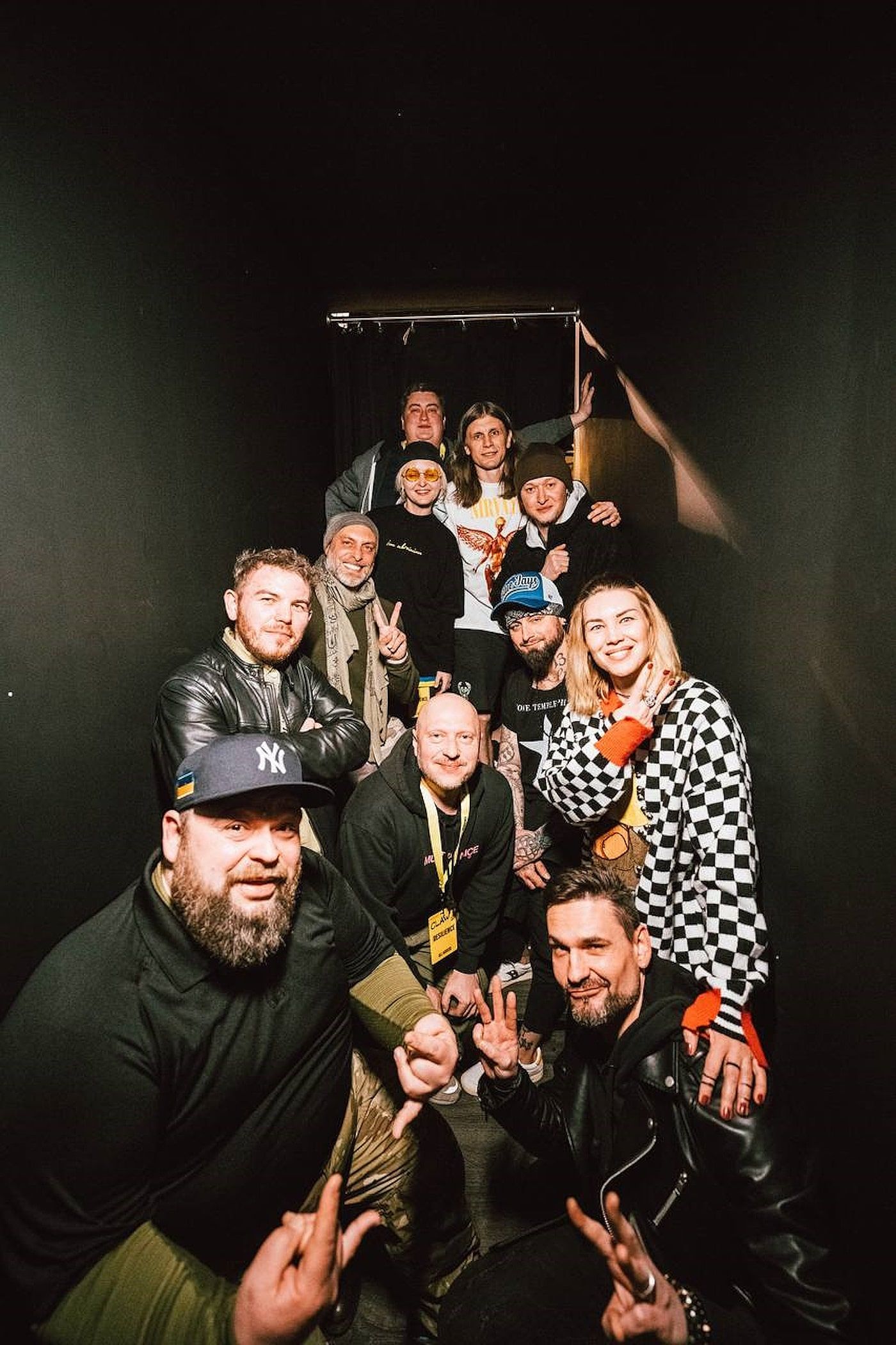
Igor also highlights the importance of community support.
“We work with many local Ukrainian communities,” he says, emphasizing the mutual support that helps these concerts thrive. These relationships are vital, fostering a sense of unity and shared purpose.
Reflecting on his journey, Igor notes that every successful show, whether small or large, is meaningful. “The magic between performers and the audience is something you can only experience at a live show,” he says, grateful for the moments that make all the hard work worthwhile.
Looking ahead, Resilience Entertainment remains committed to its mission. Igor’s focus is clear: continue supporting Ukraine and promoting its artists for as long as needed. New projects are always on the horizon, from bringing Georgian band MGZAVREBI to North America to hosting legendary Romanian band FANFARE CIOCARLIA.
In a rapidly changing music industry, Igor sees both challenges and opportunities.
He acknowledges the potential impact of AI and the shifting landscape of concert promotion, but remains optimistic about the future. “Artists are not going anywhere,” he states. Digital platforms have become integral to their strategy, utilizing every tool available to promote events and connect with audiences.
Ultimately, Igor’s message is one of support and community. “Talent is a gift,” he says, urging people to support their local artists and be part of the art community. For Resilience Entertainment, it’s about connecting people, cultures, and causes through the universal language of music.
Check out our full interview below.
Igor, your journey from Odessa to Chicago is fascinating. Can you share a bit more about what motivated you to dive into the concert business back in the day?
Since I can remember I was always mesmerized by talented musicians and performers. Watching American music videos in 1980’s while in what was then the USSR blew my mind. Having no such talent myself, I was amazed and drawn to music. When I got to US, I figured I could be a DJ at least, which would get me as close as possible to this magical realm.
My first DJ gigs were in high school. It put me in the spotlight and exactly where I thought I was happy to be at the time. Soon after I was putting on parties, organizing and promoting them, finding places, renting sound and lights from some strange guy’s garage, and making flyers – drawing them by hand and making copies to distribute, it was a lot of fun and I wasn’t thinking further than the next party. In college, I joined the radio scene, and being on a popular local Friday night weekly radio show, opened up more opportunities.
I started my own weekly radio show on an AM station for the ex-Soviet diaspora that later became daily and would last for almost 15 years. For some time while in college, organizing parties, deejaying, and hosting radio was it for me, while I was getting opportunities to meet musicians and singers. At some point, I was asked to promote a concert by myself.
I had no idea what I was doing, but I got a taste for a different world of live shows. In my early 20’s I transitioned from deejaying to organizing and promoting concerts. It was a challenging path, full of ups and downs, but always exciting.
You’ve been in the concert business for over 24 years. What were some of the early challenges you faced when you first started organizing events in North America?
Looking back, I think the biggest challenge for me was being a naive and idealistic kid getting into a rough show business world. I naturally went with the artists I knew and liked and did things the way I thought were right. Boy, was I wrong… I didn’t have anyone to learn from really, other than from my own mistakes. I went through learning most of it the hard way.
I’ve trusted people I shouldn’t have, I lost a ton of money, I made a ton of money, I made friends, I made enemies. I went from doing it only in my hometown Chicago to other cities and eventually all over North America. That’s countless stories, some great, some not so much, some purely insane.
I can give you one very small example, how we operated and how things were back then, and what kind of mistakes I made.
I was bringing a popular ex-Soviet pop group to US. In one of the large cities, I had a local promoter who was recommended to me and who was responsible for facilitating a local venue and a tech rider. Some guy who was in his late 30s and we only spoke on the phone prior. When we got to the venue for soundcheck it seemed like the event had already started, the place was full of people drinking and dancing, and this promoter guy came out to greet us was very very high on something and couldn’t speak coherently.
We quickly found out that there were no green rooms set up for the artist and there was no backline set up on stage.. just a microphone. By this time the whole crowd had surrounded us, happy to see the artist… We had nowhere to go, couldn’t perform, couldn’t do anything other than leave. It was a disaster: a very upset artist, five hundred very upset and very drunk people who had paid for the concert that didn’t happen, and a drugged out-of-his-mind promoter threatening to kill me. Lots of money was lost.
But that’s not the end of the story. Sometime later this promoter called me to apologize and explain why things went wrong, it was the drugs, he messed it all up, he wanted to fix things and rehabilitate himself, and he was begging for my help and to give him a change. I agreed… A year later we came back with the same pop group. I spoke with the promoter a couple of days before to go over all the details again and again to make sure all would be right. When we got to the city I could not get a hold of him anymore. Eventually, he answered. He was high on something, I couldn’t understand what he was saying.
All I got was that he didn’t think I would actually trust him this time and come.. so he didn’t do anything he was supposed to.. again. Thankfully, this time it was in the morning and I had time to fix things myself for the show to take place…
Starting a business at 13 washing cars sounds impressive, but also tough! How did those early entrepreneurial experiences shape your approach to building Resilience Entertainment?
I assure you it was neither tough nor impressive. We were kids in Soviet Ukraine in the 90’s, it was a moment of lawlessness and a dramatically fast and corrupt switch from socialism to capitalism. A lot of good and bad things were happening all at once. Some people were making money they also wanted to spend. We had some time to kill and water was free.
Why not set up a spontaneous hand car wash on an empty playground at our school right near our apartment building? These carwashes started appearing on every other street corner in the summer. Many kids were doing it. I can’t tell you precisely if that had any deep impact on me, other than the fact that coming from a very modest, border line poor family, I saw a clear difference between people who would take steps and do something new or unconventional or just take charge when they saw an opportunity.
You’d only see something like that in Western movies, now I saw real people waving actual US dollars in front of me.
Resilience Entertainment has been pivotal in promoting Ukrainian artists in North America. What inspired you to focus on bringing Ukrainian talent to the US?
Bringing top artists from Ukraine was not a new concept to us, we’ve been doing it almost from the get go. We actually did last shows right as Covid was starting to hit with a top Ukrainian artist, and we restarted right as the Covid restrictions were being lifted with a top Ukrainian artist. Ukraine was always very fruitful when it came to talent. But what happened after the war had started was us bringing a lot more Ukrainian artists than before. The Cultural Front as we call it. We would bring lesser known artists, up and coming artists, do more cities than before – all to raise the spirits and awareness.
In 2022 and 2023, your agency donated significant amounts to Ukraine relief funds. Can you talk about how these charity concerts come together and the impact they have had?
I can just give you a real story, one of many: a wounded and rehabilitated young veteran came up after the show to one of our artists in a city in Ukraine and said “you don’t know me, but my name is so and so, and funds from your American concerts paid for my prosthetics that I’m standing on now. I was at your charity show in New York last year as one of the wounded soldiers brought to US for rehabilitation”.
Just about every show allows us to donate, artists donate, American-Ukrianian NGO’s we work in collaboration with, facilitate it. That is a much smaller impact if you compare it to millions and billions in international aid you hear or read about on the news, but it’s important and impactful never the less. Another example: we work with a small local tiny NGO in Toronto, they come to our shows and sell Ukrainian memorabilia and souvenirs. It’s small, maybe a couple thousand dollars each time.
Well, after the shows they buy one or several items and send it to a specific unit they have a relationship with. It could be just one drone, or backpacks filled with baselayers and socks, or a thermal vision binoculars. It goes direct from one person to another, bypassing buracrocy. I personally know people on both ends. It works and it matters. Does that mean that everyshow we’ve put together made money? No. Does that mean that there are never any issues along the line? No.
We are focused on doing the right thing as we see it, and working with the people we can trust.
The Cultural Front concept is powerful. How do you see the role of music and cultural events in supporting Ukraine during these challenging times?
These types of events serve as awareness about the war, to keep it on peoples minds and in the news locally, they serve as uplifting and recharging the spirits for the ukrainians in the diaspora who come to support together with others and of course as a constant flow of donations. Everything works, any type of events: rallies, meetings, exhibitions, concerts.
You’ve worked with a diverse range of artists, from well-known names to emerging talents. How do you select which new artists to promote, and what qualities do you look for?
When it comes to Ukrainian artists, or artists from post Soviet republics, now countries it’s more or less streamlined, we know them, they know us, we have a long lasting reputation on the market. The emerging ones – when they reach out, we start a relationship. Many times we reach out to them. It’s not very difficult as we are right in the center of the music scene.
With other European artists we are always on the look out for interesting acts. We also monitor our audiences here in North America for feedback, listening for what they would like. When all the puzzle pieces align – we bring them here for a tour. It could be small like 4-5 cities, it could be big like 20 cities. It could be someone who is unique but not so well knows and we are introducing the artist really, it could be someone who already had a few hit songs. It could be a big star on a big tour.
You’ve mentioned working closely with local Ukrainian communities. Can you share some insights on how these communities have supported your efforts and the concerts you organize?
We do work with many, and their support has been significant. Although there are many more and we are constantly developing new relationships across North America. We do what we can to help them promote their own efforts to help Ukriane, or help Ukrainians who are here in the US or Canada. There are local communities that are focused on delivering help to Ukraine or raising awareness, or helping newcomers and refugees from Ukraine adapt here. These are the same people who would enjoy events and concerts we organize. It’s a two way street.
Your experience during the Russia-Ukraine war must have been intense. Can you share one of the most profound lessons you’ve learned from that period?
Intense yes. As I’ve mentioned many times before, as intense as my personal experiences are, I can’t even compair it to the experiences of my friends and relatives and other people I’ve talked to who are or were in the midst of the war, under the bombs and rockets. It’s unimaginable horror.
As to me, besides the shock of it all, on a personal level, meaningful relationships that have shattered for various reasons, mostly on the Russian side. I choose not to judge outloud any more, after learning complex circumstances, fear and shutting down feelings and emotions of some people. There’s nothing I can do. These broken relationships do hurt.
In your previous interviews, you’ve spoken about resilience. How do you cultivate this trait within your team and the artists you work with?
That’s the name of the game, to be honest. It’s very difficult to survive in the realm of live shows without resilience. I don’t have the exact statistics, but you know how they say that restaurant business is tough, and 9 out 10 would shut down within the first year or two?
Well, I think with promoters it’s similar. It’s a tough business and there are so many things that lay outside of your control. I believe that every time our team pulls through a difficult situation, (and those do arise consistently), shows everyone on the team in real time that resilience, grit and focus help make it happen. It’s one thing to read it on paper, or watch a youtube video, and another to live it day in and day out, experiencing it first hand.
You’re constantly working on new projects. What’s next for Resilience Entertainment, and how do you see the agency evolving in the next few years?
Maintaining our focus on helping Ukraine and promoting Ukrainian artists for as long as it takes, we continue to work and expand with others, for example currently we are launching the first ever North American tour of a Georgian band called Mgzavrebi, and soon after a legendary Romanian band Fanfare Ciocarlia. It such an experience, amazing music and singing and the performances. If you don’t explore you won’t know.
The music industry has changed drastically over the years. What are your thoughts on the current trends in concert promotion and artist management?
Honestly, who knows what’s going to happen with AI in a couple of years. Also, looks like the government is currently going after the big monopolies like Livenation/Ticketmaster, which could be a good thing for artists and smaller promoters.
Bottom line, artrists are not going anywhere and with all the tools that have already reshaped the music industry plus with what’s coming with AI, it only means more talent being able to showcase themselves and earn from it, more opportunities to grow and expend beyond borders.
Digital music and online streaming have transformed the industry. How has Resilience Entertainment adapted to these changes, and what role do digital platforms play in your promotion strategy?
When it comes to promotion we’re 99.9% digital, I’d say, utilizing just about every tool available to analyzie and promote events, besides the obvious avenues like all the social media channels and search, we’re utilizing things like spotify for running our own playlists, bandsintown, telegram channels, and working closely with artists themselves to coloborate.
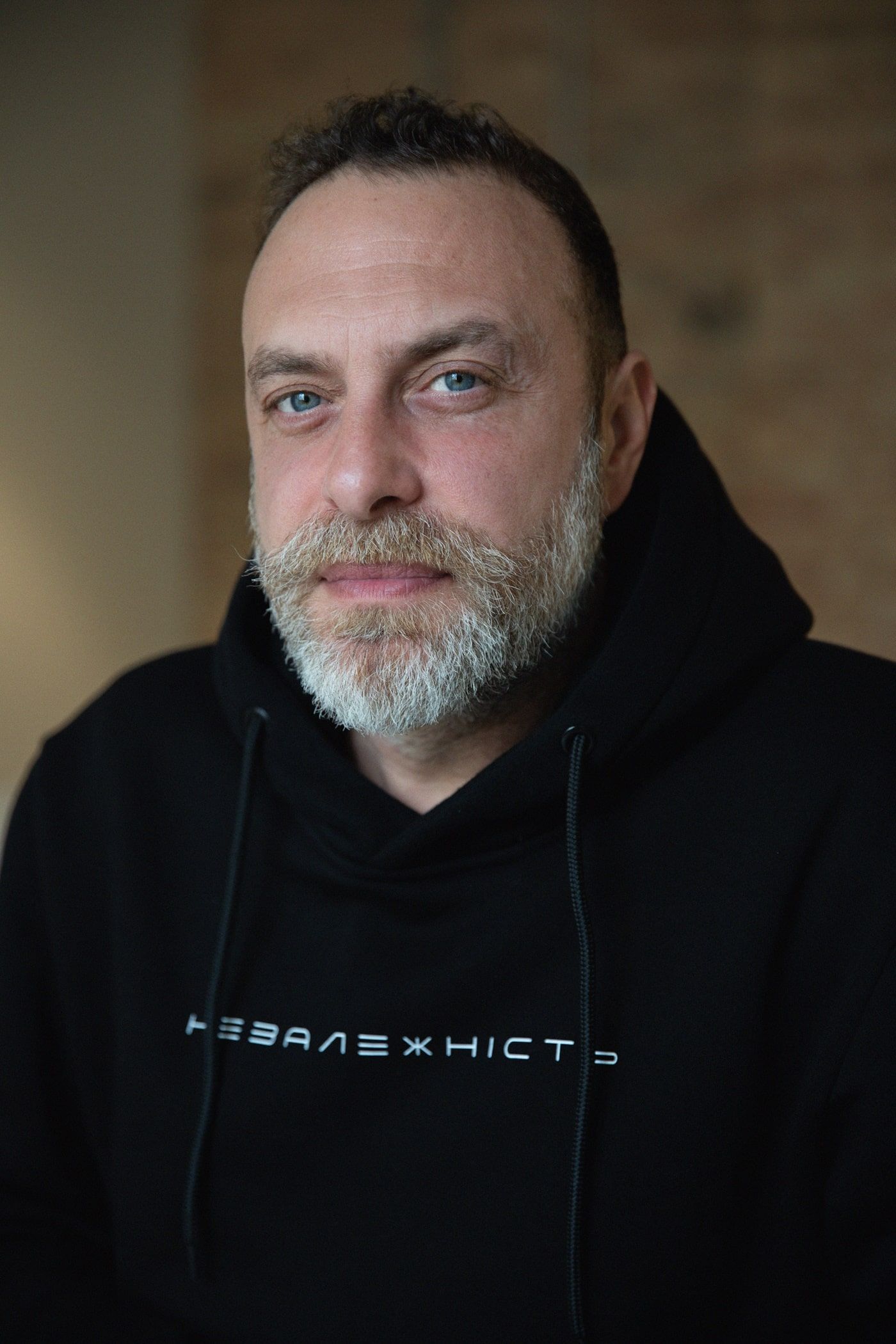
Looking back at your journey, is there a particular moment or achievement that stands out as especially meaningful to you?
Every show we put on, small or big, if the magic happens between the performers and the audience, something you can only experience at a live show – it’s meaningful and rewarding to me. I’m sure your readers know what I’m talking about.
I’m grateful to have witnessed many of such moments, and I hope many more are to come. Over the years, what stands out the most is probably every time we put on a show that we previousley considered to be out of our reach, wether it’s an artist or a venue that raises the bar for us. Like putting on a show at Madison Square Garden earlier this year.
If there’s one message you’d like to convey to your audience and the broader community about the power of music and cultural exchange, what would it be?
I think talent is a gift, and having the ability to share it with others is truly amazing, in any form of art. Support the causes that are worth supporting to you, support your local artists, be part of any art community especially local, it’s fulfilling and rewarding.
We are just grateful for being able to connect some of those things for people within our communities and do some good while at it.



